June 21 stands as one of history’s most eventful days, witnessing the rise and fall of empires, groundbreaking discoveries, and moments that shaped our modern world across centuries of human achievement.
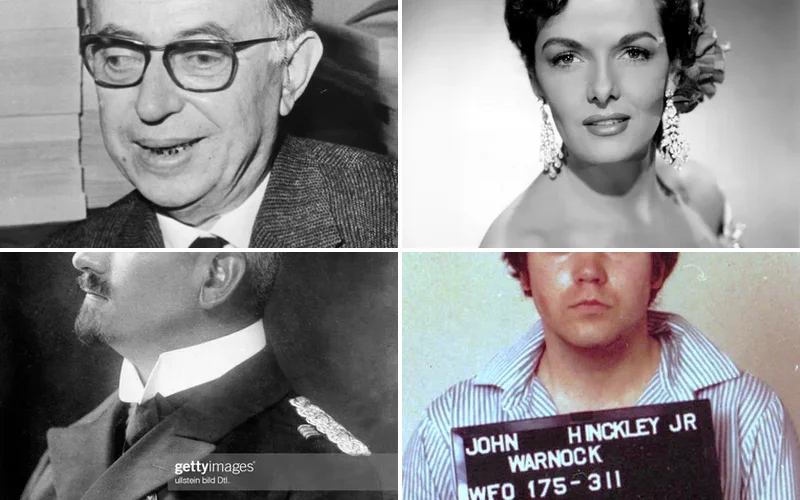
Politics and Government Events on June 21
1915 – Supreme Court Strikes Down Grandfather Clause
The U.S. Supreme Court delivered a landmark decision in Guinn v. United States, striking down Oklahoma’s grandfather clause legislation. This discriminatory law had effectively denied voting rights to Black Americans throughout the state.
The Court’s ruling marked a crucial step toward protecting constitutional voting rights. This decision helped establish important precedents for future civil rights legislation and constitutional challenges.
1957 – Canada’s First Female Cabinet Minister

Ellen Fairclough made history by becoming Canada’s first female Cabinet Minister when she was sworn into office. Her appointment shattered the glass ceiling in Canadian federal politics and opened doors for future generations.
Fairclough’s groundbreaking achievement represented a significant milestone in women’s political participation. Her pioneering role paved the way for greater female representation in government leadership positions.
1963 – Cardinal Montini Elected Pope Paul VI
Cardinal Giovanni Battista Montini was elected as Pope Paul VI, ascending to lead the Catholic Church during a transformative period. His election came during the Second Vatican Council, positioning him to guide major church reforms.
The new Pope would oversee significant changes in Catholic doctrine and practice. His leadership would prove instrumental in modernizing the Church’s relationship with the contemporary world.
1982 – Hinckley Found Not Guilty by Reason of Insanity

John Hinckley was found not guilty by reason of insanity for the attempted assassination of President Ronald Reagan. The verdict sparked intense national debate about the insanity defense in American criminal law.
The controversial decision led to significant changes in federal insanity defense statutes. Public outcry prompted lawmakers to reform legal standards for mental illness claims in criminal cases.
2009 – Greenland Assumes Self-Rule
Greenland achieved a historic milestone by assuming self-rule from Denmark, gaining greater autonomy over its internal affairs. The new arrangement gave Greenlanders control over most domestic policies while maintaining Danish oversight of foreign affairs.
This transition represented decades of political evolution toward greater independence. The self-rule agreement established Greenlandic as the official language and granted the territory control over its natural resources.
Military and Naval History on June 21
1919 – German Fleet Scuttled at Scapa Flow
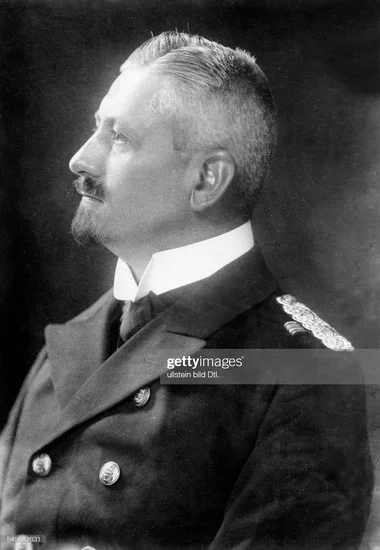
Admiral Ludwig von Reuter ordered the scuttling of the German fleet at Scapa Flow, Orkney, in a dramatic act of naval defiance. The nine sailors killed in this operation became the last casualties of World War I.
This massive self-destruction prevented the Allied powers from dividing the German warships among themselves. The scuttling demonstrated German naval officers’ refusal to surrender their fleet intact to former enemies.
1940 – Italy Invades France
Italy launched an unsuccessful invasion of France as World War II intensified across European battlefields. Mussolini’s forces attempted to capitalize on France’s weakened position following German advances.
The Italian offensive faced fierce French resistance despite France’s precarious military situation. This ill-conceived invasion would prove costly for Italy and strain its already limited military resources.
1942 – Tobruk Falls to Axis Forces
Tobruk fell to Italian and German forces in a devastating blow to Allied North African campaigns. The capture resulted in 33,000 Allied troops being taken prisoner in one of the war’s largest surrenders.
This strategic defeat opened the path toward Egypt for Rommel’s Afrika Korps. The loss of Tobruk and its massive prisoner haul severely damaged British morale and strategic position.
1945 – Battle of Okinawa Ends
The Battle of Okinawa concluded when organized Japanese resistance collapsed in the Mabuni area on the island’s southern tip. This bloody campaign had lasted 82 days and claimed enormous casualties on both sides.
The battle’s end marked the final major Pacific theater engagement before Japan’s surrender. The fierce resistance encountered on Okinawa influenced American decision-making regarding the planned invasion of Japan.
Science and Discovery Milestones on June 21
1993 – Space Shuttle Endeavour Launches on STS-57

Space Shuttle Endeavour launched on mission STS-57 to retrieve the European Retrievable Carrier satellite from orbit. This mission marked the first time a Space Shuttle carried the innovative Spacehab module.
The successful satellite retrieval demonstrated advanced orbital rendezvous and capture capabilities. The Spacehab module significantly expanded the crew’s working space and experimental capacity during the mission.
2004 – SpaceShipOne Achieves First Private Spaceflight
SpaceShipOne became the first privately funded spaceplane to achieve spaceflight, opening a new era in commercial space exploration. This historic achievement demonstrated that private companies could successfully develop space-capable vehicles.
The breakthrough flight paved the way for the emerging commercial space industry. SpaceShipOne’s success inspired numerous private space ventures and fundamentally changed aerospace industry dynamics.
2006 – Pluto’s Moons Named Nix and Hydra

Pluto’s newly discovered moons received their official names of Nix and Hydra from the International Astronomical Union. These small satellites had been discovered through advanced telescopic observations and careful orbital analysis.
The naming followed established astronomical conventions while honoring mythological traditions. These discoveries enhanced understanding of the Pluto system’s complexity before its reclassification as a dwarf planet.
Cultural and Arts Events on June 21
1978 – Evita Opens in London
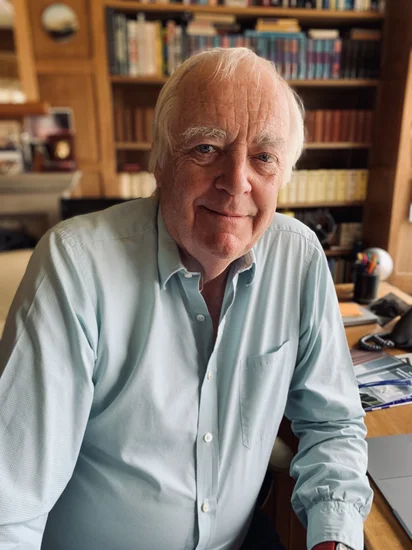
Tim Rice and Andrew Lloyd Webber’s musical Evita premiered at the Prince Edward Theatre in London. The production brought Eva Perón’s dramatic life story to the musical theater stage with innovative staging and memorable songs.
The musical’s opening launched one of the most successful theatrical collaborations in history. Evita’s blend of political drama and musical storytelling revolutionized contemporary musical theater.
Religious and Social Events on June 21
1963 – Civil Rights Workers Murdered in Mississippi

Three civil rights workers, Andrew Goodman, James Chaney, and Michael Schwerner, were murdered by Ku Klux Klan members in Neshoba County, Mississippi. Their deaths shocked the nation and galvanized support for civil rights legislation.
The brutal killings exposed the violent resistance to civil rights organizing in the Deep South. The murders became a rallying point for the civil rights movement and federal intervention in voter registration efforts.
1929 – Cristero War Ends in Mexico
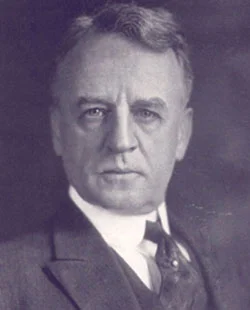
U.S. Ambassador Dwight Whitney Morrow successfully brokered an agreement ending the Cristero War in Mexico. This religious conflict had torn the country apart for three years as Catholics fought against anti-clerical government policies.
The peace agreement restored religious freedoms and ended the violent persecution of Catholic clergy. Morrow’s diplomatic intervention demonstrated American influence in resolving Latin American conflicts.
2000 – Scotland Repeals Section 28
Scotland repealed Section 28 of the Local Government Act, which had prohibited the “promotion” of homosexuality in schools. The Scottish Parliament voted 99 to 17 to eliminate this controversial legislation.
The repeal marked a significant victory for LGBTQ+ rights advocates in the United Kingdom. Scotland’s action preceded similar reforms in other parts of Britain and advanced equality legislation.
Business and Economic Events on June 21
1970 – Penn Central Declares Bankruptcy
Penn Central declared Section 77 bankruptcy in what became the largest U.S. corporate bankruptcy to date. The railroad giant’s collapse sent shockwaves through American financial markets and transportation networks.
The bankruptcy highlighted serious structural problems in the American railroad industry. Penn Central’s failure led to government intervention and the eventual creation of Conrail to maintain essential rail services.
Transportation and Infrastructure on June 21
1985 – Braathens SAFE Flight 139 Hijacked

Braathens SAFE Flight 139 was hijacked on approach to Oslo Airport, Fornebu, creating a tense international incident. Norwegian special forces successfully arrested the hijacker without any fatalities among passengers or crew.
The successful resolution demonstrated effective crisis management and counter-terrorism capabilities. The incident highlighted growing aviation security concerns during the 1980s terrorism wave.
2006 – Yeti Airlines Crash in Nepal

A Yeti Airlines de Havilland Canada DHC-6 Twin Otter crashed at Jumla Airport in Nepal, killing nine people. The accident highlighted the challenging flying conditions in Nepal’s mountainous terrain.
The crash underscored ongoing aviation safety concerns in remote Himalayan regions. Nepal’s difficult geography and weather conditions continue to pose significant challenges for commercial aviation.
2012 – Migrant Boat Capsizes in Indian Ocean
A boat carrying more than 200 migrants capsized between Java and Christmas Island, killing 17 people and leaving 70 missing. The tragedy highlighted the dangerous conditions faced by asylum seekers attempting to reach Australia.
The incident sparked renewed debate about immigration policies and maritime rescue operations. The capsizing demonstrated the human cost of dangerous sea crossings undertaken by desperate refugees.
Sports and Recreation on June 21
1930 – Conscription Begins in France
One-year military conscription came into force in France as the nation prepared for potential future conflicts. The policy required all eligible young men to serve in the military for twelve months.
This conscription system would prove crucial as tensions rose across Europe in the 1930s. The military service requirement helped France maintain a trained reserve force during the pre-war period.
1952 – Philippine School of Commerce Becomes College
The Philippine School of Commerce was converted to Philippine College of Commerce through a republic act. This institution would later become the Polytechnic University of the Philippines.
The upgrade reflected the growing importance of higher education in the developing Philippines. The transformation helped establish the institution as a leading center for business and technical education.
1973 – Primer Congreso del Hombre Andino Opens
The First Congress of Andean Man was inaugurated in Arica, Chile, bringing together scholars and indigenous leaders. The conference addressed issues facing Andean peoples and their cultural preservation.
The congress represented growing recognition of indigenous rights and cultural identity. The gathering helped establish important networks for protecting Andean traditions and promoting indigenous interests.
Notable Births on June 21
1905 – Jean-Paul Sartre Born

French philosopher and author Jean-Paul Sartre entered the world in Paris, destined to become one of the 20th century’s most influential thinkers. His childhood experiences in a bourgeois family shaped his later critiques of social conventions.
Sartre would develop existentialist philosophy and become a leading intellectual voice. His works explored themes of freedom, responsibility, and authentic existence that defined modern philosophical discourse.
1921 – Jane Russell Born

American actress Jane Russell was born in Bemidji, Minnesota, later becoming one of Hollywood’s most iconic stars. Her striking beauty and talent would captivate audiences throughout the golden age of cinema.
Russell’s breakthrough role in “The Outlaw” launched her to stardom despite censorship controversies. Her successful career spanned decades and established her as a major Hollywood personality.
1947 – Shirin Ebadi Born

Iranian lawyer and human rights activist Shirin Ebadi was born in Hamadan, Iran, later becoming a Nobel Prize laureate. Her dedication to justice and women’s rights began early in her legal career.
Ebadi became the first Iranian and first Muslim woman to receive the Nobel Peace Prize. Her courageous advocacy for human rights continues to inspire activists worldwide.
1953 – Benazir Bhutto Born
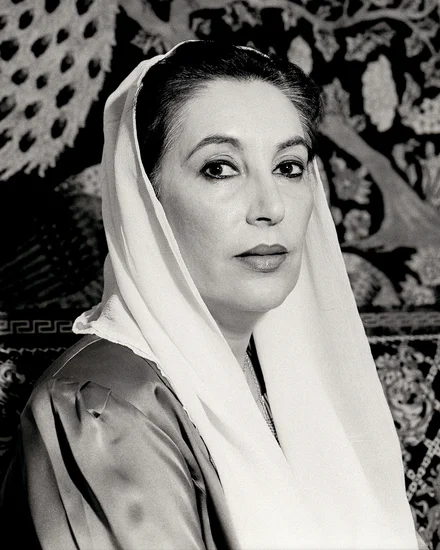
Pakistani politician Benazir Bhutto was born in Karachi, destined to become the first female Prime Minister of Pakistan. Her privileged upbringing and Oxford education prepared her for political leadership.
Bhutto broke barriers as the first woman to lead a Muslim nation in modern times. Her political career, though marked by controversy, advanced women’s participation in South Asian politics.
1961 – Joko Widodo Born
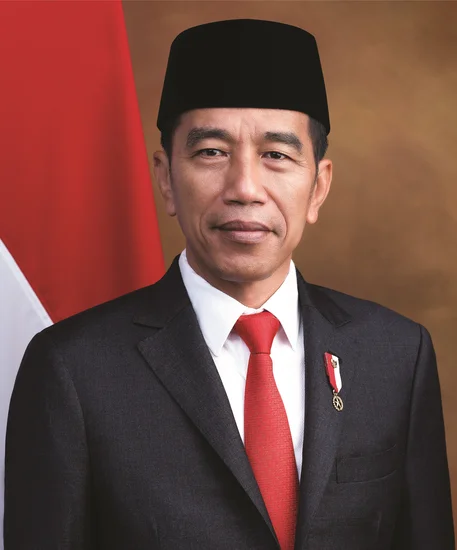
Indonesian businessman and politician Joko Widodo was born in Surakarta, Central Java, later becoming Indonesia’s seventh President. His humble beginnings as a furniture businessman shaped his populist political approach.
Widodo’s rise from local mayor to national leader demonstrated Indonesia’s democratic evolution. His presidency has focused on infrastructure development and economic modernization.
1967 – Pierre Omidyar Born

French-American businessman Pierre Omidyar was born in Paris, later founding eBay and revolutionizing online commerce. His Iranian-French heritage and American upbringing influenced his global perspective.
Omidyar’s creation of eBay transformed how people buy and sell goods worldwide. His entrepreneurial success helped establish the foundation of modern e-commerce and digital marketplaces.
1982 – William, Prince of Wales Born

Prince William was born at St. Mary’s Hospital in London, becoming heir apparent to the British throne. His birth was celebrated throughout the Commonwealth and marked a new generation of royal leadership.
The Prince’s upbringing balanced royal tradition with modern sensibilities. His future role as King represents continuity and evolution within the British monarchy.
1985 – Lana Del Rey Born

American singer-songwriter Lana Del Rey was born Elizabeth Grant in New York City, later becoming one of contemporary music’s most distinctive voices. Her artistic vision emerged from studying philosophy and poetry.
Del Rey’s cinematic musical style and nostalgic aesthetic captivated global audiences. Her unique blend of pop, rock, and Americana created a new genre of melancholic glamour.
1996 – Edward Snowden Born

American whistleblower Edward Snowden was born in Elizabeth City, North Carolina, later becoming one of the most controversial figures in intelligence history. His technical skills and government work provided access to classified information.
Snowden’s revelations about NSA surveillance programs sparked global debates about privacy and security. His actions fundamentally changed discussions about government transparency and civil liberties.
Notable Deaths on June 21
1908 – Nikolai Rimsky-Korsakov Dies
Russian composer Nikolai Rimsky-Korsakov passed away at age 64, leaving behind a magnificent legacy of orchestral masterpieces. His brilliant orchestration skills and melodic genius influenced generations of composers.
Rimsky-Korsakov’s works like “Scheherazade” and “Flight of the Bumblebee” remain concert hall staples. His teaching at the St. Petersburg Conservatory shaped many future Russian musical talents.
1964 – Civil Rights Workers Murdered
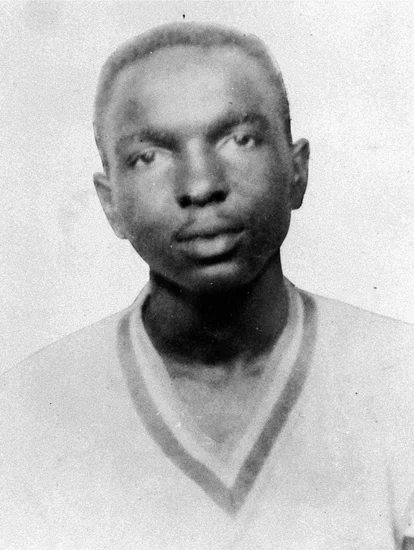
James Chaney, Andrew Goodman, and Michael Schwerner were murdered by Ku Klux Klan members in Mississippi while registering Black voters. Their deaths became a defining moment in the civil rights movement.
The brutal killings exposed the violent resistance to civil rights work in the Deep South. Their sacrifice helped galvanize national support for the Civil Rights Act of 1964.
1970 – Sukarno Dies
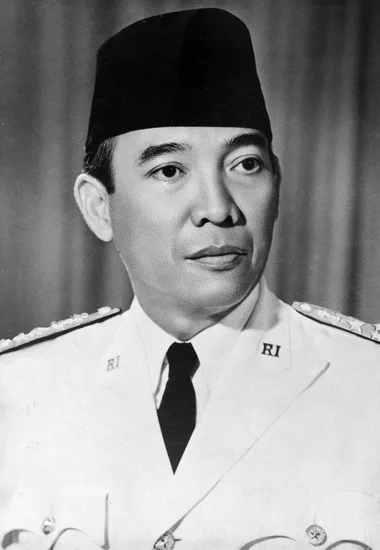
Indonesian President Sukarno died at age 69, ending the life of one of the 20th century’s most influential leaders. His role in Indonesia’s independence struggle and non-aligned movement shaped global politics.
Sukarno’s presidency saw Indonesia emerge as a major force in the developing world. His political philosophy of Pancasila continues to influence Indonesian national identity.
2001 – John Lee Hooker Dies

American blues legend John Lee Hooker passed away at age 83, concluding one of music’s most influential careers. His distinctive guitar style and deep, gravelly voice defined the Mississippi Delta blues sound.
Hooker’s music influenced countless rock and blues musicians across multiple generations. His raw, emotional performances brought authentic blues to international audiences.
2001 – Carroll O’Connor Dies
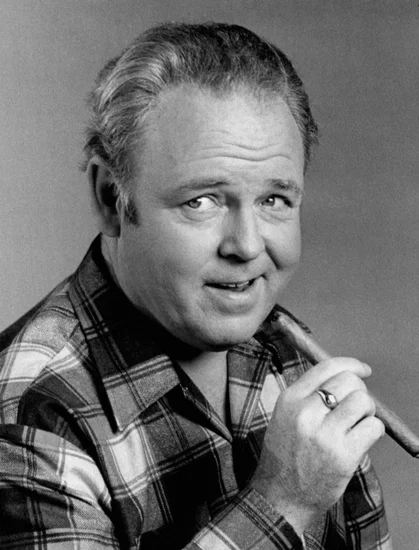
American actor Carroll O’Connor died at age 76, best remembered for his groundbreaking role as Archie Bunker. His portrayal of the controversial character challenged television conventions and sparked national conversations.
O’Connor’s performance in “All in the Family” earned multiple Emmy Awards and cultural recognition. His work helped television address serious social issues through comedy and drama.
2003 – Leon Uris Dies
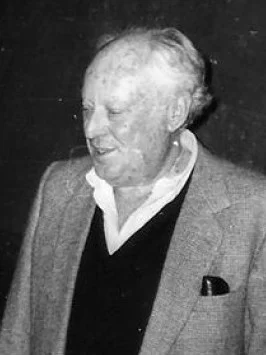
American author Leon Uris passed away at age 78, leaving behind a legacy of powerful historical novels. His works brought major historical events to life for millions of readers worldwide.
Uris’s novels like “Exodus” and “Trinity” combined meticulous research with compelling storytelling. His books helped readers understand complex historical periods through personal narratives.
Holidays and Observances on June 21
International Yoga Day

The United Nations designated June 21 as International Yoga Day, recognizing yoga’s global impact on health and wellness. This ancient practice promotes physical fitness, mental clarity, and spiritual well-being across cultures.
The observance encourages people worldwide to embrace yoga’s benefits for personal and community health. The day features demonstrations, classes, and educational events promoting this transformative practice.
National Indigenous Peoples Day

Canada celebrates National Indigenous Peoples Day, honoring the rich cultures and contributions of First Nations, Inuit, and Métis peoples. This recognition acknowledges indigenous communities’ vital role in Canadian history and society.
The observance features cultural celebrations, educational programs, and community gatherings across the country. The day promotes understanding and appreciation of indigenous traditions and contemporary achievements.
World Humanist Day
World Humanist Day promotes humanist values of reason, compassion, and human dignity without religious doctrine. This observance encourages ethical living based on human experience and rational thinking.
The day features discussions, educational events, and community service projects reflecting humanist principles. Participants worldwide engage in activities promoting social justice and human rights.
Fête de la Musique

France celebrates Fête de la Musique, a festival encouraging amateur and professional musicians to perform publicly. This musical celebration transforms cities into open-air concert venues for one magical day.
The festival promotes musical diversity and community participation through free performances. Musicians of all skill levels share their talents, creating a joyful celebration of artistic expression.
Father’s Day

Several countries including Egypt, Lebanon, Jordan, Syria, Uganda, Pakistan, and the United Arab Emirates celebrate Father’s Day. This observance honors fathers and their contributions to family and society.
The celebration includes family gatherings, special meals, and expressions of gratitude for paternal guidance. The day recognizes the important role fathers play in child development and family stability.
